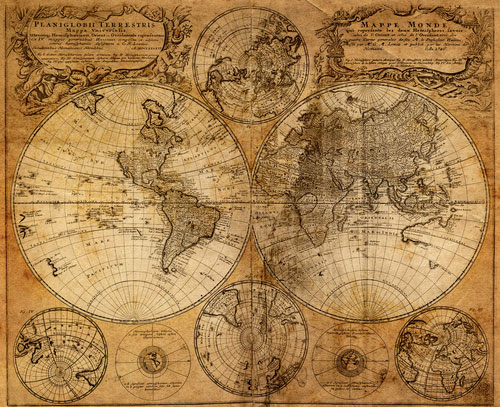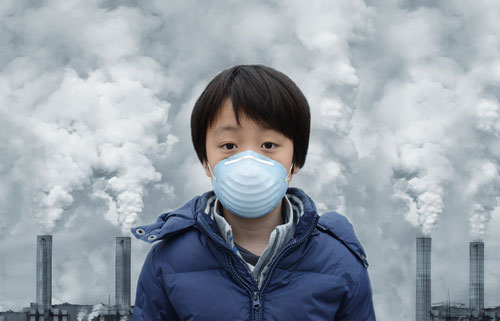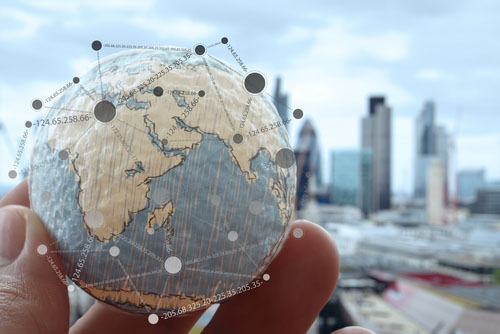Globalization – what is it? What is the definition of globalization? Benefits and negative effects? What are the top examples of globalization? What famous quotes have been said about globalization?
What is Globalization? All Definitions of Globalization
A Simple Globalization Definition
Globalization means the speedup of movements and exchanges (of human beings, goods, and services, capital, technologies or cultural practices) all over the planet. One of the effects of globalization is that it promotes and increases interactions between different regions and populations around the globe.
An Official Definition of Globalization by the World Health Organization (WHO)
According to WHO, globalization can be defined as ” the increased interconnectedness and interdependence of peoples and countries. It is generally understood to include two inter-related elements: the opening of international borders to increasingly fast flows of goods, services, finance, people and ideas; and the changes in institutions and policies at national and international levels that facilitate or promote such flows.”
What Is Globalization in the Economy?
According to the Committee for Development Policy (a subsidiary body of the United Nations), from an economic point of view, globalization can be defined as:
“(…) the increasing interdependence of world economies as a result of the growing scale of cross-border trade of commodities and services, the flow of international capital and the wide and rapid spread of technologies. It reflects the continuing expansion and mutual integration of market frontiers (…) and the rapid growing significance of information in all types of productive activities and marketization are the two major driving forces for economic globalization.”
What Is Globalization in Geography?
In geography, globalization is defined as the set of processes (economic, social, cultural, technological, institutional) that contribute to the relationship between societies and individuals around the world. It is a progressive process by which exchanges and flows between different parts of the world are intensified.
Globalization and the G20: What is the G20?
The G20 is a global bloc composed by the governments and central bank governors from 19 countries and the European Union (EU). Established in 1999, the G20 gathers the most important industrialized and developing economies to discuss international economic and financial stability. Together, the nations of the G20 account for around 80% of global economic output, nearly 75 percent of all global trade, and about two-thirds of the world’s population.
G20 leaders get together in an annual summit to discuss and coordinate pressing global issues of mutual interest. Though economics and trade are usually the centerpieces of each summit’s agenda, issues like climate change, migration policies, terrorism, the future of work, or global wealth are recurring focuses too. Since the G20 leaders represent the “political backbone of the global financial architecture that secures open markets, orderly capital flows, and a safety net for countries in difficulty”, it is often thanks to bilateral meetings during summits that major international agreements are achieved and that globalization is able to move forward.
The joint action of G20 leaders has unquestionably been useful to save the global financial system in the 2008/2009 crisis, thanks to trade barriers removal and the implementation of huge financial reforms. Nonetheless, the G20 was been struggling to be successful at coordinating monetary and fiscal policies and unable to root out tax evasion and corruption, among other downsides of globalization. As a result of this and other failures from the G20 in coordinating globalization, popular, nationalist movements across the world have been defending countries should pursue their interests alone or form fruitful coalitions.
How Do We Make Globalization More Just?
The ability of countries to rise above narrow self-interest has brought unprecedented economic wealth and plenty of applicable scientific progress. However, for different reasons, not everyone has been benefiting the same from globalization and technological change: wealth is unfairly distributed and economic growth came at huge environmental costs. How can countries rise above narrow self-interest and act together or designing fairer societies and a healthier planet? How do we make globalization more just?
According to Christine Lagarde, former President of the International Monetary Fund, “debates about trade and access to foreign goods are as old as society itself ” and history tells us that closing borders or protectionism policies are not the way to go, as many countries doing it have failed.
Lagarde defends we should pursue globalization policies that extend the benefits of openness and integration while alleviating their side effects. How to make globalization more just is a very complex question that involves redesigning economic systems. But how? That’s the question.
Globalization is deeply connected with economic systems and markets, which, on their turn, impact and are impacted by social issues, cultural factors that are hard to overcome, regional specificities, timings of action and collaborative networks. All of this requires, on one hand, global consensus and cooperation, and on the other, country-specific solutions, apart from a good definition of the adjective “just”.
When Did Globalization Begin? The History of Globalization

For some people, this global phenomenon is inherent to human nature. Because of this, some say globalization begun about 60,000 years ago, at the beginning of human history. Throughout time, human societies’ exchanging trade has been growing. Since the old times, different civilizations have developed commercial trade routes and experienced cultural exchanges. And as well, the migratory phenomenon has also been contributing to these populational exchanges. Especially nowadays, since traveling became quicker, more comfortable, and more affordable.
This phenomenon has continued throughout history, notably through military conquests and exploration expeditions. But it wasn’t until technological advances in transportation and communication that globalization speeded up. It was particularly after the second half of the 20th century that world trades accelerated in such a dimension and speed that the term “globalization” started to be commonly used.
Examples of Globalization (Concept Map)
Because of trade developments and financial exchanges, we often think of globalization as an economic and financial phenomenon. Nonetheless, it includes a much wider field than just flowing of goods, services or capital. Often referred to as the globalization concept map, some examples of globalization are:
- Economic globalization: is the development of trade systems within transnational actors such as corporations or NGOs;
- Financial globalization: can be linked with the rise of a global financial system with international financial exchanges and monetary exchanges. Stock markets, for instance, are a great example of the financially connected global world since when one stock market has a decline, it affects other markets negatively as well as the economy as a whole.
- Cultural globalization: refers to the interpenetration of cultures which, as a consequence, means nations adopt principles, beliefs, and costumes of other nations, losing their unique culture to a unique, globalized supra-culture;
- Political globalization: the development and growing influence of international organizations such as the UN or WHO means governmental action takes place at an international level. There are other bodies operating a global level such as NGOs like Doctors without borders or Oxfam;
- Sociological globalization: information moves almost in real-time, together with the interconnection and interdependence of events and their consequences. People move all the time too, mixing and integrating different societies;
- Technological globalization: the phenomenon by which millions of people are interconnected thanks to the power of the digital world via platforms such as Facebook, Instagram, Skype or Youtube.
- Geographic globalization: is the new organization and hierarchy of different regions of the world that is constantly changing. Moreover, with transportation and flying made so easy and affordable, apart from a few countries with demanding visas, it is possible to travel the world without barely any restrictions;
- Ecological globalization: accounts for the idea of considering planet Earth as a single global entity – a common good all societies should protect since the weather affects everyone and we are all protected by the same atmosphere. To this regard, it is often said that the poorest countries that have been polluting the least will suffer the most from climate change.
The Benefits of Globalization
Globalization has benefits that cover many different areas. It reciprocally developed economies all over the world and increased cultural exchanges. It also allowed financial exchanges between companies, changing the paradigm of work. Many people are nowadays citizens of the world. The origin of goods became secondary and geographic distance is no longer a barrier for many services to happen. Let’s dig deeper.
The Engine of Globalization – An Economic Example
The most visible impacts of globalization are definitely the ones affecting the economic world. Globalization has led to a sharp increase in trade and economic exchanges, but also to a multiplication of financial exchanges.
In the 1970s world economies opened up and the development of free trade policies accelerated the globalization phenomenon. Between 1950 and 2010, world exports increased 33-fold. This significantly contributed to increasing the interactions between different regions of the world.
This acceleration of economic exchanges has led to strong global economic growth. It fostered as well a rapid global industrial development that allowed the rapid development of many of the technologies and commodities we have available nowadays.
Knowledge became easily shared and international cooperation among the brightest minds speeded things up. According to some analysts, globalization has also contributed to improving global economic conditions, creating much economic wealth (thas was, nevertheless, unequally distributed – more information ahead).
Globalization Benefits – A Financial Example
At the same time, finance also became globalized. From the 1980s, driven by neo-liberal policies, the world of finance gradually opened. Many states, particularly the US under Ronald Reagan and the UK under Margaret Thatcher introduced the famous “3D Policy”: Disintermediation, Decommissioning, Deregulation.
The idea was to simplify finance regulations, eliminate mediators and break down the barriers between the world’s financial centers. And the goal was to make it easier to exchange capital between the world’s financial players. This financial globalization has contributed to the rise of a global financial market in which contracts and capital exchanges have multiplied.
Globalization – A Cultural Example

Together with economic and financial globalization, there has obviously also been cultural globalization. Indeed, the multiplication of economic and financial exchanges has been followed by an increase in human exchanges such as migration, expatriation or traveling. These human exchanges have contributed to the development of cultural exchanges. This means that different customs and habits shared among local communities have been shared among communities that (used to) have different procedures and even different beliefs.
Good examples of cultural globalization are, for instance, the trading of commodities such as coffee or avocados. Coffee is said to be originally from Ethiopia and consumed in the Arabid region. Nonetheless, due to commercial trades after the 11th century, it is nowadays known as a globally consumed commodity. Avocados, for instance, grown mostly under the tropical temperatures of Mexico, the Dominican Republic or Peru. They started by being produced in small quantities to supply the local populations but today guacamole or avocado toasts are common in meals all over the world.
At the same time, books, movies, and music are now instantaneously available all around the world thanks to the development of the digital world and the power of the internet. These are perhaps the greatest contributors to the speed at which cultural exchanges and globalization are happening. There are also other examples of globalization regarding traditions like Black Friday in the US, the Brazilian Carnival or the Indian Holi Festival. They all were originally created following their countries’ local traditions and beliefs but as the world got to know them, they are now common traditions in other countries too.
Why Is Globalization Bad? The Negative Effects of Globalization
Globalization is a complex phenomenon. As such, it has a considerable influence on several areas of contemporary societies. Let’s take a look at some of the main negative effects globalization has had so far.
The Negative Effects of Globalization on Cultural Loss
Apart from all the benefits globalization has had on allowing cultural exchanges it also homogenized the world’s cultures. That’s why specific cultural characteristics from some countries are disappearing. From languages to traditions or even specific industries. That’s why according to UNESCO, the mix between the benefits of globalization and the protection of local culture’s uniqueness requires a careful approach.
The Economic Negative Effects of Globalization
Despite its benefits, the economic growth driven by globalization has not been done without awakening criticism. The consequences of globalization are far from homogeneous: income inequalities, disproportional wealth and trades that benefit parties differently. In the end, one of the criticisms is that some actors (countries, companies, individuals) benefit more from the phenomena of globalization, while others are sometimes perceived as the “losers” of globalization. As a matter of fact, a recent report from Oxfam says that 82% of the world’s generated wealth goes to 1% of the population.
The Negative Effects of Globalization on the Environment

Many critics have also pointed out that globalization has negative effects on the environment. Thus, the massive development of transport that has been the basis of globalization is also responsible for serious environmental problems such as greenhouse gas emissions, global warming or air pollution.
At the same time, global economic growth and industrial productivity are both the driving force and the major consequences of globalization. They also have big environmental consequences as they contribute to the depletion of natural resources, deforestation and the destruction of ecosystems and loss of biodiversity. The worldwide distribution of goods is also creating a big garbage problem, especially on what concerns plastic pollution.
- Related:
Globalization, Sustainable Development, and CSR
Globalization affects all sectors of activity to a greater or lesser extent. By doing so, its gap with issues that have to do with sustainable development and corporate social responsibility is short.
By promoting large-scale industrial production and the globalized circulation of goods, globalization is sometimes opposed to concepts such as resource savings, energy savings or the limitation of greenhouse gases. As a result, critics of globalization often argue that it contributes to accelerating climate change and that it does not respect the principles of ecology. At the same time, big companies that don’t give local jobs and choose instead to use the manpower of countries with low wages (to have lower costs) or pay taxes in countries with more favorable regulations is also opposed to the criteria of a CSR approach. Moreover, the ideologies of economic growth and the constant pursuit of productivity that come along with globalization, also make it difficult to design a sustainable economy based on resilience.
On the other hand, globalization is also needed for the transitioning to a more sustainable world, since only a global synergy would really be able to allow a real ecological transition. Issues such as global warming indeed require a coordinated response from all global players: fight against CO2 emissions, reduction of waste, a transition to renewable energies. The same goes for ocean or air pollution, or ocean acidification, problems that can’t be solved without global action. The dissemination of green ideas also depends on the ability of committed actors to make them heard globally.
- Related:
The Road From Globalization to Regionalization

From a globalization perspective, regionalization means a world that is less interconnected and has a stronger regional focus.
Regionalization can also be analyzed from a corporate perspective. For instance, businesses such as McDonald’s or Starbucks don’t sell exactly the same products everywhere. In some specific stores, they consider people’s regional habits. That’s why the McChicken isn’t sold in India, whereas in Portugal there’s a steak sandwich menu like the ones you can get in a typical Portuguese restaurant.
Politically speaking, when left-wing parties are in power they tend to focus on their country’s people, goods and services. Exchanges with the outside world aren’t seen as very valuable and importations are often left aside.
Globalization Quotes by World Influencers
Many world leaders, decision-makers and influential people have spoken about globalization. Some stand out its positive benefits and others focus deeper on its negative effects. Find below some of the most interesting quotes on this issue.
Politic Globalization Quotes
Globalization quote by the former U.S President Bill Clinton ??
No generation has had the opportunity, as we now have, to build a global economy that leaves no-one behind. It is a wonderful opportunity, but also a profound responsibility.
Globalization quote by Barack Obama, former U.S. president ??
Globalization is a fact, because of technology, because of an integrated global supply chain, because of changes in transportation. And we’re not going to be able to build a wall around that.
Globalization quote by Dominique Strauss-Kahn, former International Monetary Fund Managing Director ??
“We can’t speak day after day about globalization without at the same time having in mind that…we need multilateral solutions.”
Globalization quote by Stephen Harper, former Prime Minister of Canada ??
“We have to remember we’re in a global economy. The purpose of fiscal stimulus is not simply to sustain activity in our national economies but to help the global economy as well, and that’s why it’s so critical that measures in those packages avoid anything that smacks of protectionism.”
Globalization quote by Julia Gillard, Prime Minister of Australia ??
“My guiding principle is that prosperity can be shared. We can create wealth together. The global economy is not a zero-sum game.”
Other Globalization Quotes
Globalization quote by the spiritual leader Dalai Lama ??
“I find that because of modern technological evolution and our global economy, and as a result of the great increase in population, our world has greatly changed: it has become much smaller. However, our perceptions have not evolved at the same pace; we continue to cling to old national demarcations and the old feelings of ‘us’ and ‘them’.”
The famous German sociologist Ulrich Beck also spoke of globalization ??
“Globalization is not only something that will concern and threaten us in the future, but something that is taking place in the present and to which we must first open our eyes.”
Globalization quote by Bill Gates, owner and former CEO of Microsoft ??
“The fact is that as living standards have risen around the world, world trade has been the mechanism allowing poor countries to increasingly take care of really basic needs, things like vaccination.”
Globalization quote by John Lennon, member of the music band The Beatles ??
Imagine there’s no countries. It isn’t hard to do. Nothing to kill or die for. And no religion, too. Imagine all the people. Living life in peace. You, you may say I’m a dreamer. But I’m not the only one. I hope someday you will join us. And the world will be as one